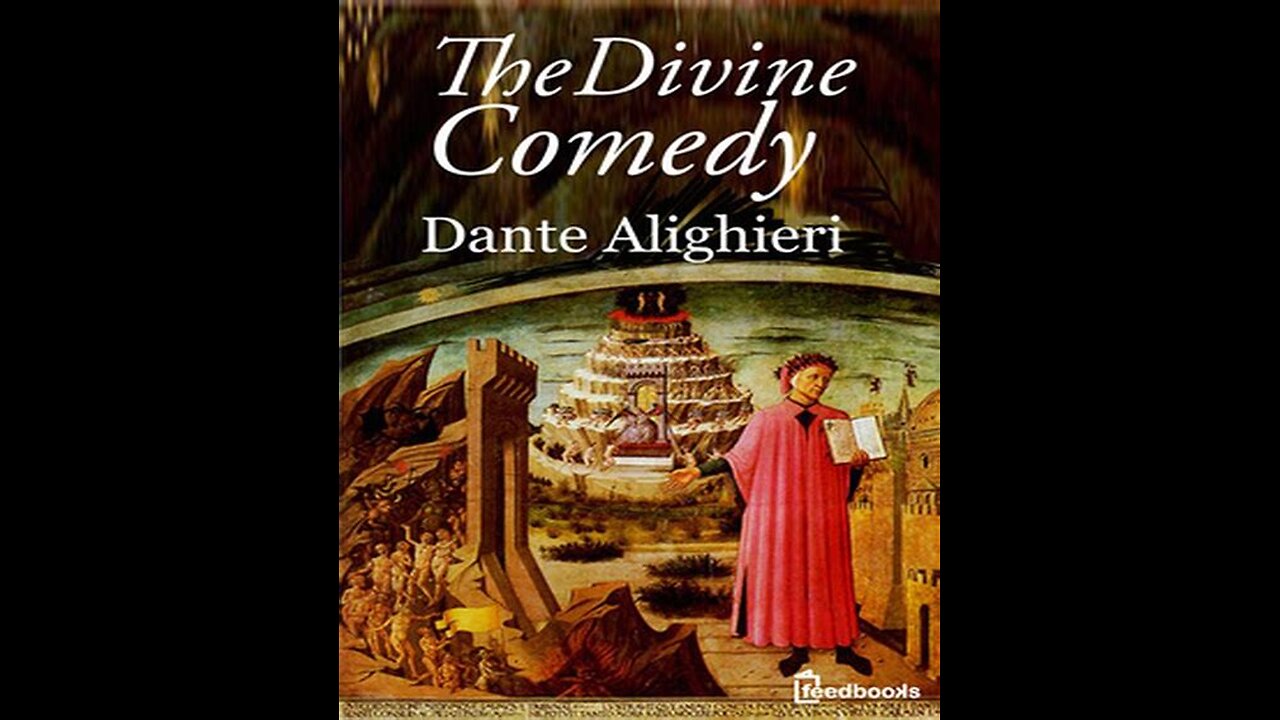Premium Only Content

The Divine Comedy by Dante Alighieri | Summary and Critique
Buy Here: https://amzn.to/3W4gEkW
"""The Divine Comedy"" is a long narrative poem written by the Italian poet Dante Alighieri. It is widely considered one of the greatest works of Western literature and a masterpiece of medieval poetry. The poem consists of three parts: Inferno, Purgatorio, and Paradiso, and it tells the story of Dante's journey through Hell, Purgatory, and Heaven.
In ""Inferno,"" Dante travels through the nine circles of Hell, guided by the ancient Roman poet Virgil. He encounters a series of sinners, each punished according to their sins. The poem is famous for its vivid depictions of suffering and its exploration of themes such as sin, justice, and divine mercy.
In ""Purgatorio,"" Dante travels through the seven terraces of Purgatory, where souls are punished for their sins but are also offered the chance for redemption. The poem explores the themes of repentance and forgiveness and highlights the role of free will in the process of salvation.
In ""Paradiso,"" Dante ascends through the nine spheres of Heaven, where he encounters angels, saints, and the Virgin Mary. The poem explores themes such as divine love, the nature of God, and the ultimate goal of human existence.
""The Divine Comedy"" is celebrated for its rich symbolism and its exploration of Christian theology and philosophy. Dante's use of allegory and imagery has influenced countless writers throughout history, and the poem remains a cornerstone of Italian literature and culture.
Critics have praised ""The Divine Comedy"" for its powerful storytelling and its timeless themes.
Overall, ""The Divine Comedy"" is a monumental work of literature that continues to be studied and admired for its artistic achievements and its profound insights into the human condition."
-
 2:05:35
2:05:35
The White House
5 hours agoPresident Trump Hosts a Reception Honoring Black History Month
32.6K35 -
 LIVE
LIVE
Josh Pate's College Football Show
4 hours agoCFP Expansion: Latest Intel | CFB’s Schedule Problem | Arch Manning Hype | ACC Program Rankings
86 watching -
 LIVE
LIVE
LFA TV
23 hours agoTrump vs. Europe | TRUMPET DAILY 2.20.25 7PM
356 watching -

Chrissy Clark
1 hour agoAn IVF Nightmare, Trump’s Illegal Immigration Crackdown, & Biden’s Student Loan Plan BLOCKED I URS
612 -
 1:02:57
1:02:57
In The Litter Box w/ Jewels & Catturd
1 day agoKASH CONFIRMATION TODAY! | In the Litter Box w/ Jewels & Catturd – Ep. 746 – 2/20/2025
82.6K67 -
 56:44
56:44
VSiNLive
3 hours ago $3.19 earnedFollow the Money with Mitch Moss & Pauly Howard | Hour 1
54K2 -
 1:08:41
1:08:41
John Crump Live
7 hours ago $1.04 earnedUSA v. Canada! Bigger Than Just A Game
19.4K5 -
 1:58:40
1:58:40
Revenge of the Cis
4 hours agoEpisode 1450: Wet Work
35.9K3 -
 3:36:29
3:36:29
vivafrei
10 hours agoKash Patel Confirmation Hearing LIVE! Jan. 6'er Kicked Out of CPAC? DOGE Wins in Court? & MORE!
253K253 -
 5:08:38
5:08:38
Barry Cunningham
10 hours agoTRUMP DAILY BRIEFING: KASH PATEL VOTE | WHITE HOUSE PRESS CONFERENCE | DOGE UPDATE
60.3K26